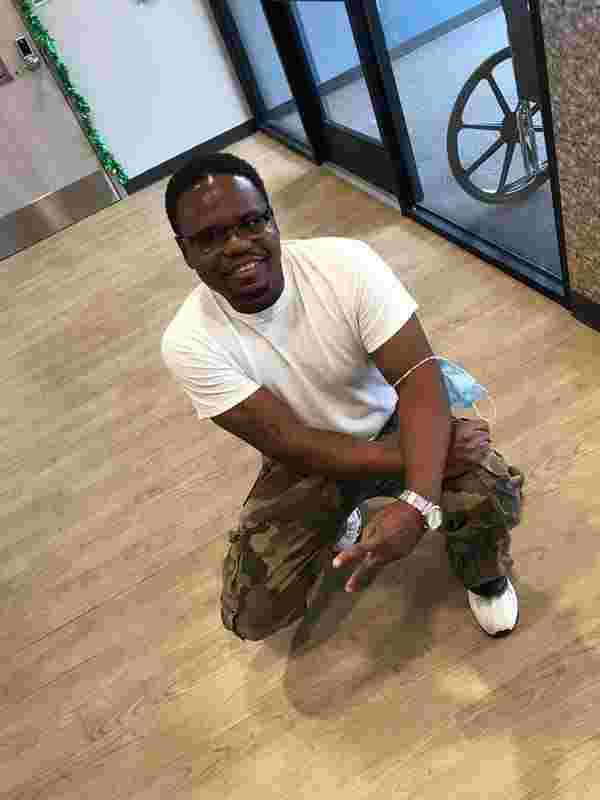
In the early hours of Friday, April 4, 2025, a tragic and senseless act of violence claimed the life of Corey Gates, a 54-year-old Army veteran who had survived the trials of the Gulf War only to meet his end on the streets of Oak Park, Illinois. The incident unfolded at 1:23 a.m. along the 600 block of South Boulevard, a quiet stretch that became the scene of a desperate struggle. Gates, who had just completed a grueling night shift as a phlebotomist, was on his way home, likely weary but relieved to be heading to the comfort of rest. Instead, he encountered a group of armed men intent on stealing his car—a possession he refused to surrender without a fight. In those fleeting, chaotic moments, Corey Gates displayed the courage that had defined his life, standing his ground against overwhelming odds. But his bravery came at a devastating cost: he was shot during the confrontation and, despite being rushed to Loyola University Medical Center in Maywood, succumbed to his injuries by 2 a.m.
The loss of Corey Gates has left his family, friends, and community reeling, grappling with the sudden void left by a man described as a fighter in every sense of the word. His twin sister, Cathleen Gates, spoke of him with a mixture of pride and heartbreak, recalling a life intertwined with hers from the very beginning. She had spoken to him just the day before, never imagining it would be their final conversation. “He served the country and came back over here and got took out by some goons,” she said, her voice carrying the weight of disbelief and sorrow. To her, Corey was more than a brother—he was a protector, a worker who never bothered anyone, and a man who faced his last moments with the same tenacity he’d shown throughout his life.
Details of the incident paint a harrowing picture. Gates had parked his white Mercedes near the CTA Green Line stop, a routine part of his commute after a late shift drawing blood and caring for patients. As he approached his vehicle, the group of assailants descended, armed and determined. Witnesses reported seeing five men clad in black fleeing the scene, their figures disappearing into the night as sirens began to pierce the air. Oak Park police responded swiftly, their investigation leading them to a group matching the description running eastbound along Pleasant Street from Cuyler Avenue. By mid-morning, six suspects were in custody—three adults and three juveniles—now held at the Oak Park Police Department as detectives work to piece together the events that led to this tragedy. No weapons have been recovered yet, leaving open questions about the precise sequence of the struggle, though an autopsy scheduled for Saturday is expected to shed further light on Gates’ final moments.
Corey Gates was no stranger to adversity. His service in the Gulf War had forged a resilience that carried him through decades of civilian life, a career in healthcare, and the daily challenges of providing for himself and those he loved. Family members say he was targeted in what appeared to be a random carjacking, a cruel twist of fate that turned a mundane commute into a fatal encounter. The community of Oak Park, a suburb known for its tree-lined streets and tight-knit feel, has been shaken by the violence, with residents expressing both grief and a hope that justice will be served. “It’s so sad that it happened,” said Edna Capinanes, a local who echoed the sentiments of many standing near the cordoned-off crime scene, where a gym shoe, medical towels, and traces of blood marked the pavement.
Police efforts to apprehend the suspects reflect a rapid response to a crime that has struck a chord far beyond Oak Park’s borders. The arrests came after a tense manhunt, with officers deploying drones and scouring nearby streets for evidence. The investigation remains active, with authorities sifting through witness accounts and forensic clues to build a case against those responsible. For Cathleen Gates and the rest of Corey’s family, the focus is singular: justice. “I just want them brought to justice. That’s all I want,” she said, her words a plea for accountability in the wake of a loss that feels both personal and profoundly unjust.
As the sun rose over South Boulevard on Friday, the remnants of the night’s violence lingered—a stark reminder of a life cut short and a community left to mourn. Corey Gates’ story is one of valor, both on the battlefield and in his final stand, a testament to a man who refused to yield even when the odds were stacked against him. For those who knew him, and for those now learning of his sacrifice, his death is a call to remember the quiet heroes among us—those who serve, work, and fight, only to be taken by an act as cowardly as it was brutal. The road to healing will be long, but in the pursuit of justice, Corey’s legacy as a fighter endures.